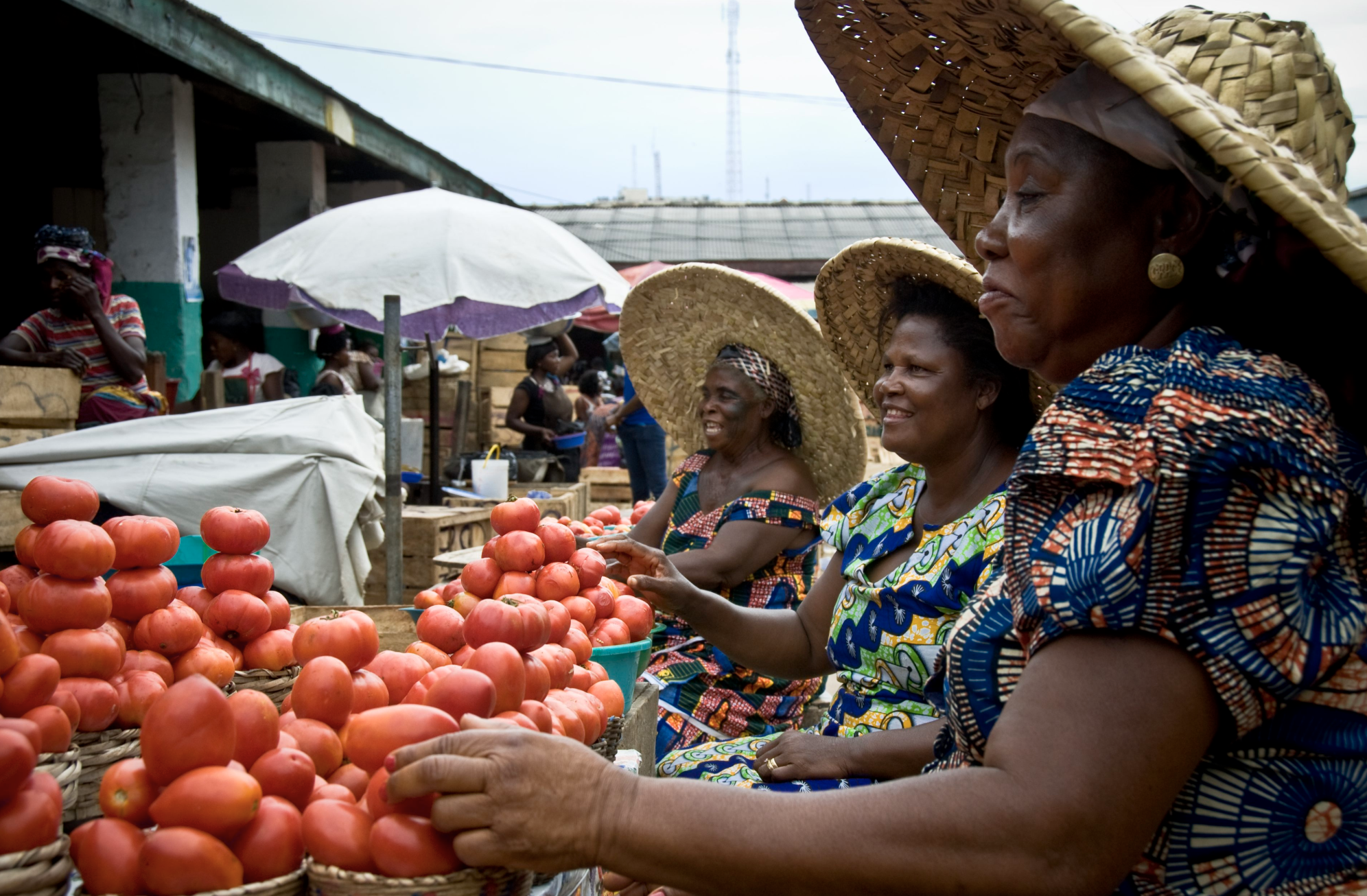In December 2015, the German newspaper Die Zeit published a feature story titled “One man picks against Europe.” Kojo Ebeneku, the tragic hero of the feature, picks full, red tomatoes from his field in Kualedor, Ghana, day in day out. Eveneku knows his craft — the 45-year old farmer has been cultivating his tomatoes for the past 35 years. Yet, while demand for tomatoes is rising, his profits are falling. When the Zeit reporter follows him to markets and street vendors that should sell Evenku’s tomatoes, he sees the brands of large southern Italian agricultural companies that drive out local products with their low prices.
Ebeneku’s experience has become symptomatic of the plight that besets the average sub-Saharan African farmer. Overall, Sub-Saharan Africa has become a net food importer. Vegetable imports from international trade, excluding inter Sub-Saharan trade, exceeded exports by more than $950 million in 2016. Such a significant trade imbalance is overwhelming for a region in which the agricultural sector employs on average 54 percent of the workforce and comprises more than 16 percent of regional GDP, more than fourfold the world average of 3.5 percent. Despite its overwhelming significance, the African agricultural sector has failed to stand up to its European competitors.
The unfair competition between Africa and the EU is well illustrated by the two regions’ subsidy programs. In Sub-Saharan Africa, so-called “input subsidies” aim to increase agricultural output per hectare. In 10 different states, fertilizers are offered at subsidized rates for a total public cost of almost €1 billion. However, in many cases the subsidies failed to reach their intended beneficiaries. In Zambia, for example, studies estimate that 30 percent of the subsidized fertilizer was resold for profit by middlemen and never reached rural farmers.
These input subsidies cannot withstand the powerful tools at the disposal of the European Union. The EU provides agricultural subsidies to farmers of its member states through the common agricultural policy (CAP) program. Almost €59 billion ($68 billion) are available for subsidies into European agriculture in 2018, constituting 36 percent of the EU’s €160 billion budget. 70 percent of the subsidies are used as “income support,” paid in the form of direct cash transfers to protect farmers from volatile markets — a form of security that African farmers like Kojo Eveneku can only dream of. With such enormous aid, farmers can afford to produce and export a higher quantity of agricultural products than they would be able to otherwise. As the CAP program increases supply for a given demand, prices fall and African farmers like Kojo Eveneku scramble for profits.
A study published by researchers from the University of Lausanne in 2010 estimates that eliminating the CAP program could result in a €33 billion increase in world GDP. Interestingly, the study argues the elimination of CAP could even increase GDP of the European Union as it allocates production away from primary food farming and instead uses land for forestry as well as manufacturing and services. In an interview with Die Zeit, Ghanaian economist Kwabena Otoo points out the stark inequality between the two players: “Free trade between Europe and Africa, that’s like a soccer game between Real Madrid and the high school team of Boli Bamboi.”
Agricultural inequality is not only relevant to Africa, but in recent years has also affected Europe. In 2017, 168,000 migrants from sub-Saharan Africa arrived in Europe, which amounts to 26 percent of Europe’s almost 650,000 first-time asylum applicants in that year. While many factors play into this stream of migration, poverty is certainly one of them. Since 2012, migration to Europe from sub-Saharan Africa more than doubled. After the height of the European refugee crisis in 2015, when the 1.3 million asylum seekers that arrived at Europe’s borders put unprecedented stress on countries’ infrastructure, the European Union recognized the need to address the root causes of migration. During the Valletta Summit on Migration in November 2015, European and African leaders established the EU Emergency Trust Fund for Africa with the mission to “deliver an integrated and coordinated response to the diverse causes of instability, irregular migration and forced displacement” and the push factors for African migration to Europe. In its 2017 annual report, the fund reports financial resources of €3.3 billion.
Reducing agricultural subsidies might be a more effective use of resources, especially given that only a rather small percentage of the European populace would be affected. In 2017, agricultural employment made up only 4 percent of total employment among EU member states. Further, 80 percent of the CAP budget goes to 20 percent of farms, which has put the program under heavy criticism as a “blatant transfer of cash to the rich”, especially in British media. The persistence of the EU’s high agriculture subsidies could be rooted in powerful agricultural lobbies and politicians holding on to traditional values. “COPA and COGECA” is one of the most powerful European farming lobbies. It represents 57 EU farmers’ organizations and 31 agricultural cooperative organizations which provide it with more political lobbying power than an average national agricultural ministry.
The future is not all that bleak, however. In May of 2019, the United Kingdom will exit the EU and no longer contribute to its budget. To close this gap, the EU might cut back on several of its expenditures — it is announced that CAP will be cut back by 5 percent. While France, the largest net beneficiary of the program receiving €9 billion annually, has always strongly opposed any CAP reductions, President Emmanuel Macron questioned the effectiveness of the program. With this, he signals a culture change towards agricultural subsidies that may give way for a more equitable agricultural trade — and give farmers like Kojo Ebeneku a chance to reap the rewards of his hard labor.
Photo: Tomato Sellers Ghana
